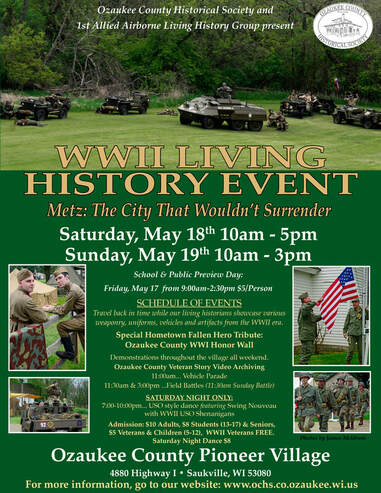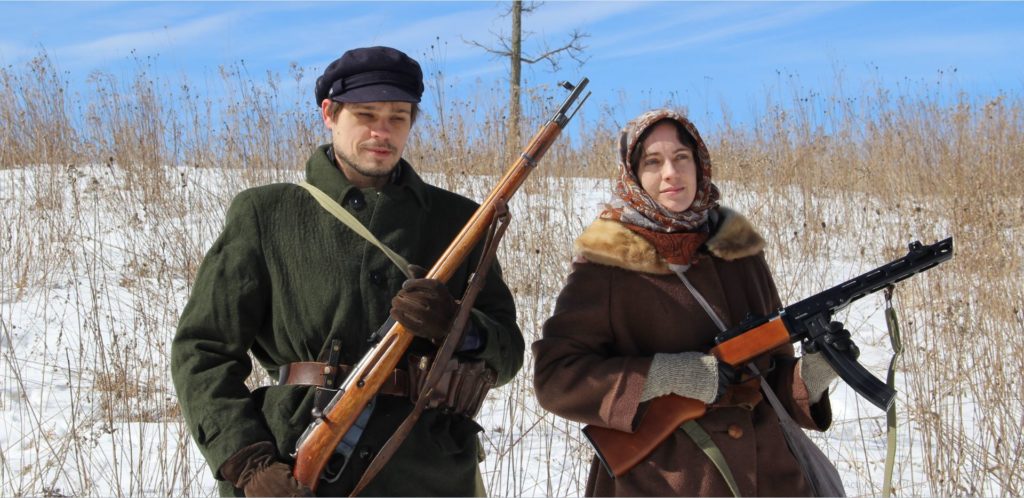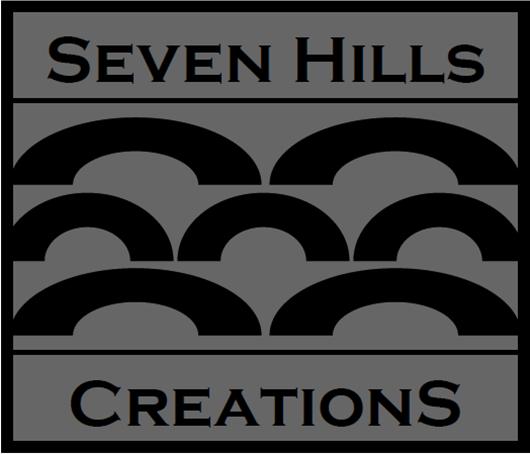Hobbyist Reenactors Bring Holocaust into the Fold at Pioneer Village's 5th Annual WWII Event5/3/2019  Reprinted with permission. Originally published in the Wisconsin Jewish Chronicle By Sari Lesk Allison Hayden said she is tired of people not talking about the Holocaust when they re-enact World War II. Hayden, an Israel, education and Jewish Community Relations Council program specialist at the Milwaukee Jewish Federation, is a hobbyist re-enactor. As a pastime, she combines her passions for performing and history to educate people on subjects they may not have learned about. Hayden typically participates in a re-enactment of the 7th Banija division, a Yugoslavian unit from World War II. But for an upcoming event, she and her friends are branching out to tell a lesser-known story. For a May event at Pioneer Village in Ozaukee County, Hayden is participating in a re-enactment of the Bielski brigade. “If you want to accurately talk about history, you need to talk about all aspects, and you really need to talk about the Holocaust,” she said. “It can’t be ignored anymore in the re-enacting community, because it’s leading to a generation of people who don’t have as much Holocaust knowledge.” The Bielski brothers created a family camp in the forest of Western Belarus, according to Yad Vashem. They created their partisan unit after their parents and other relatives were killed in a massacre of about 5,000 Jews in 1941, and went on to save about 1,200 Jews. “I hear a lot of people say, ‘Well why did the Jews just let themselves get murdered in the Holocaust? Why didn’t they do anything to fight back?’” Hayden said. “I’ve always tried to be like, ‘No, they did fight back. There was a lot of resistance.’ But I feel like it’s never represented at re-enactments.” Hayden is creating the impression with Daniel Palama, who founded their original 7th Banija unit. Palama, who has a degree in Holocaust studies, said his research shows the Bielski brigade became so organized that its village included a synagogue, schools and a hospital. Palama said he wants people to learn from this re-enactment how a culture was lost as people were displaced from their homes – an issue he said is mostly skirted around in World War II re-enactments. He also said the re-enacting community needs “a narrative that helps to make things much more complex than just the black-and-white of it being G.I. Joe versus Jerry from Bavaria.” Hayden and Palama said they will create a camp with Jewish antiques for this impression, including prayer books, along with Russian and Polish Jewish books. In addition to being available throughout the day to talk with visitors, their unit is creating a formal presentation, they said. Hayden said she hopes people will better understand the Jewish experience during the Holocaust. “There was a sense that the Jews weren’t going to go down without a fight, and that Jewish life was present and precious,” she said. “Despite the best efforts of the Germans and their collaborators, they could escape, and they could move on and they did fight back. They didn’t just roll over to their deaths, as I’ve heard some people say.” * * * The Ozaukee County Historical Society Holds its 5th Annual WWII Event The year is 1944 and the city is Metz, France, a city located in northeast France that had previously fallen to Germans in 1940 and was annexed to the Third Reich. The Allied forces of France, with its heavy fortifications, became an important focal point for the Germans to mount a defense to contain the advancing U.S. Third Army. The battle for Metz, France lasted from September until the end of November in 1944, with heavy causalities. The last isolated forts of Metz did not surrender until well into December 1944. On Saturday and Sunday, May 18-19, the Ozaukee County Historical Society and the 1st Allied Airborne Living History Re-enactors will transform Ozaukee County Pioneer Village into a European Village in the midst of World War II. Get ready to step back in time and experience, first-hand: “Metz: The City That Wouldn’t Surrender”. Attendees can expect to see the military encampments of U.S., German and French units, to name a few. They will see the Veteran’s Military Museum military vehicles on parade, plus demonstrations, uniforms, artifacts and weaponry of the time. They will visit a French café, a USO canteen in a 1907 railroad station and the Metz field battles. A special USO style dance is held on Saturday at 7:00PM in the Village Hall featuring wartime favorites and the music of the forties by one of Milwaukee’s best swing band, Swing Nouveau. The re-enactors and USO girls will wear the dress-best to entertain the public, as well. Come listen to the music and attend the dance for only $8. The event runs from 10AM to 5PM on Saturday and 10AM to 3PM on Sunday. Admission is $10 for adults, $8 for students (13-17) and Seniors and $5 for all veterans and children 5-12. World War II veterans and small children (under 5) are free. Wrist bands will be provided, so those who attend can see the encampment during the day on Saturday and come back for the dance in the evening, at no additional cost. Food and beverages are available both days. Pioneer Village is located at 4880 Highway I in the Town of Saukville. Go to https://www.ochs.co.ozaukee.wi.us/events for event schedule and further details of the event.
0 Comments
Your comment will be posted after it is approved.
Leave a Reply. |
Archives
June 2024
Categories
All
|
Published By: |
|

 RSS Feed
RSS Feed
